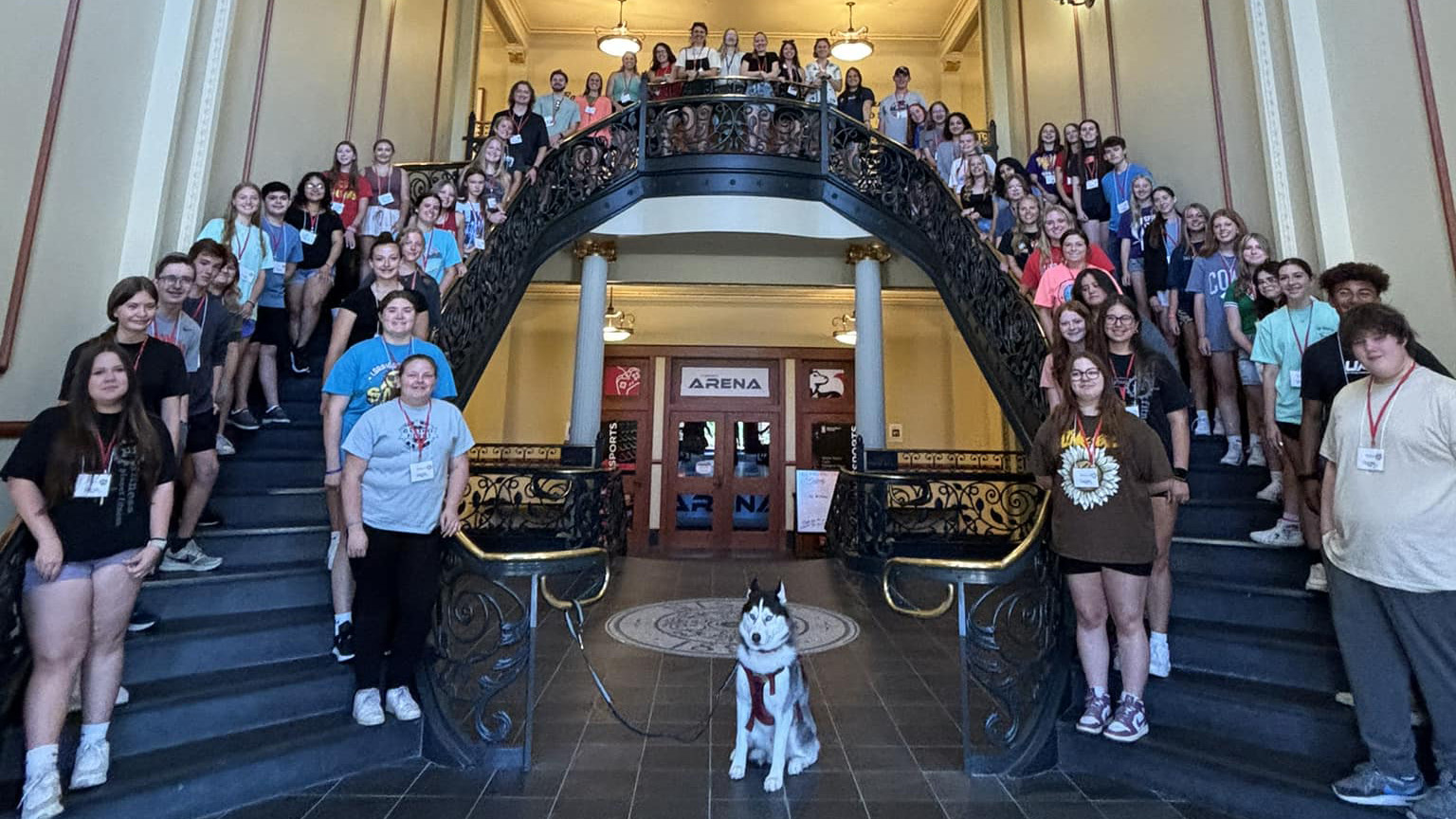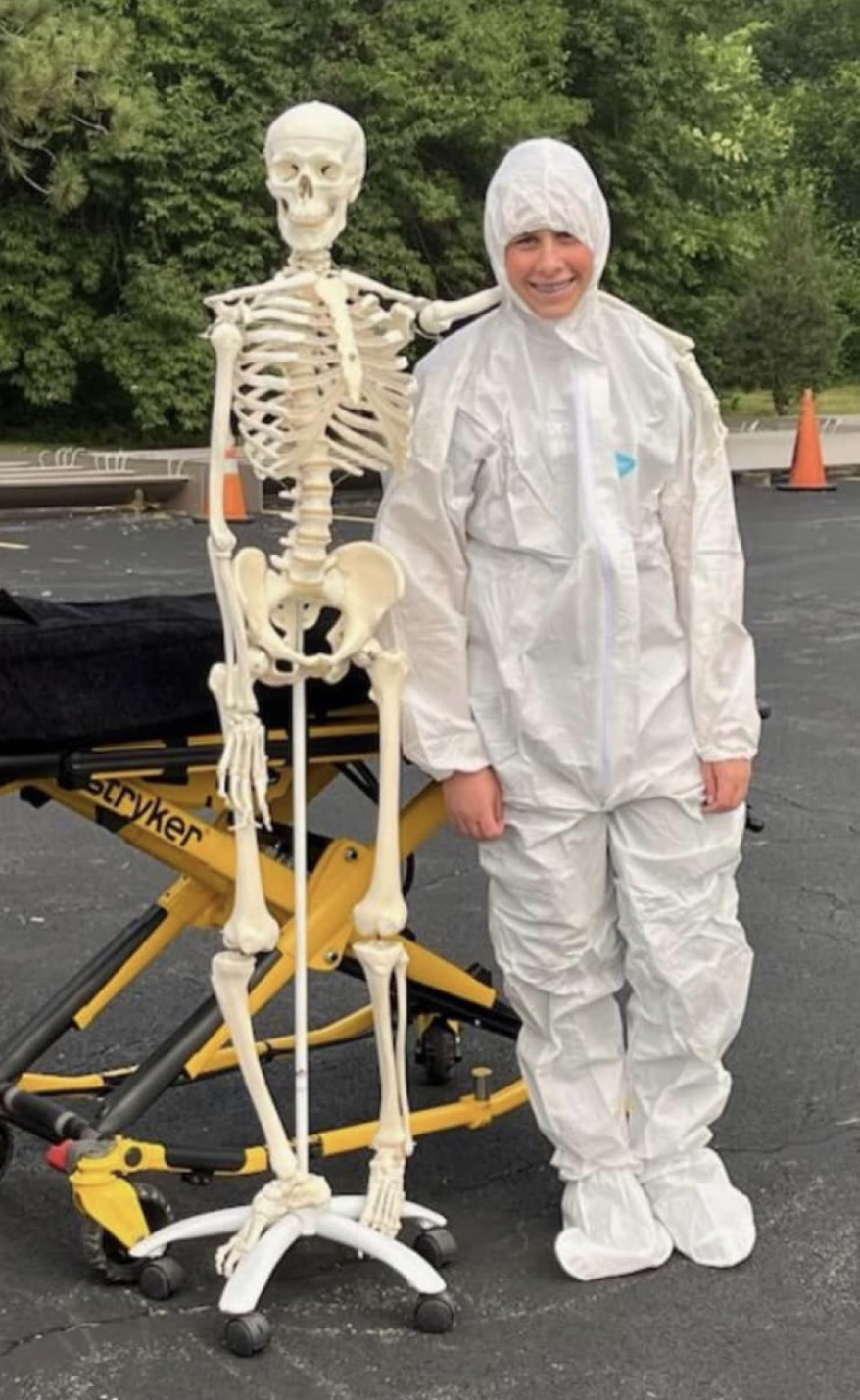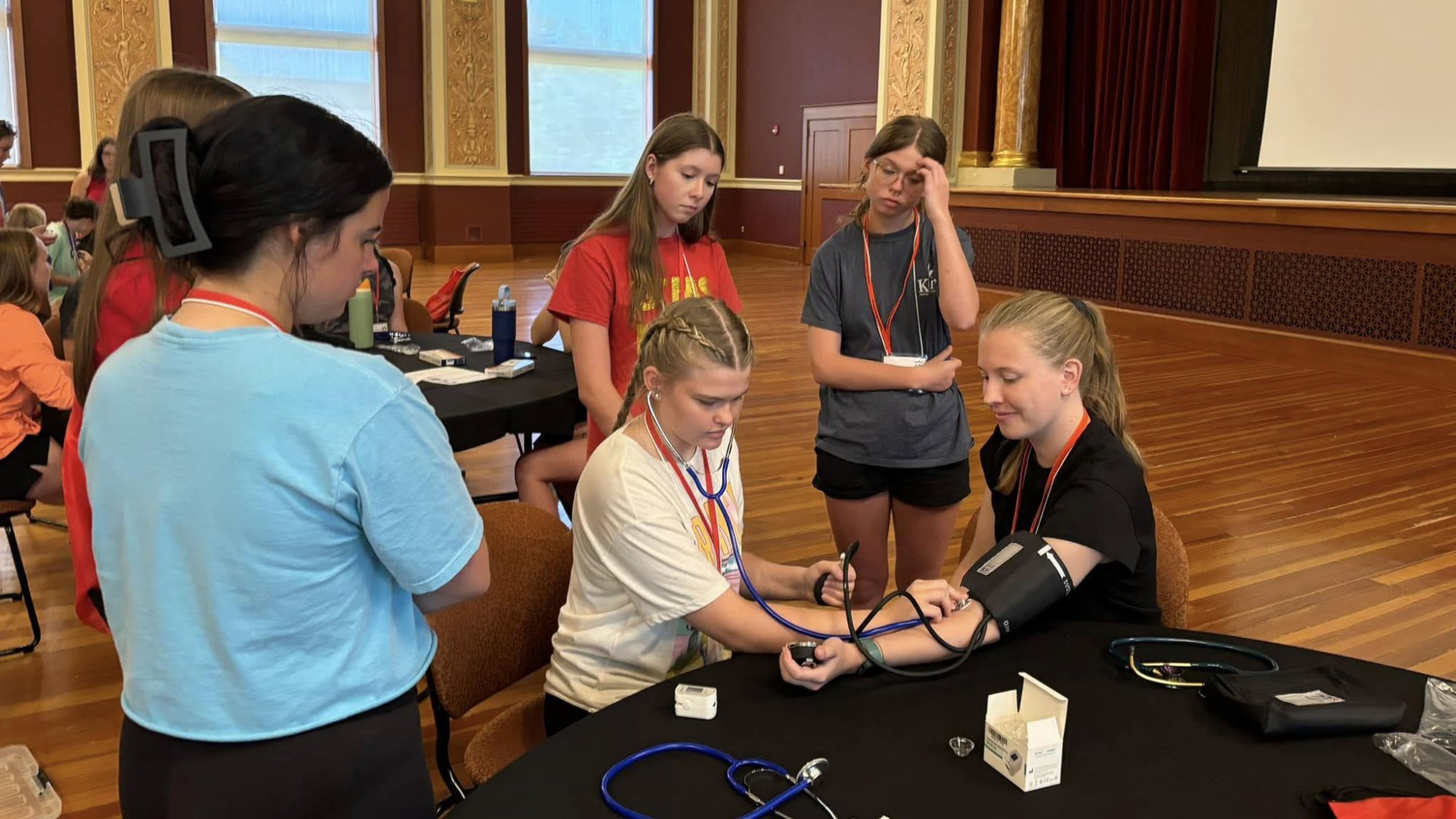Summer camps inspire students to choose rural health careers
In many cases, a rural health career starts with a spark. Maybe a student is curious about how to deliver a baby or intubate a patient. Maybe they want to reach remote populations through public health initiatives. Or maybe they’re passionate about serving their hometown and caring for the people they know and love.
In her role as outreach coordinator at Eastern Montana Area Health Education Center (AHEC) housed at Riverstone Health, Nikole Bakko sees these flashes of inspiration all the time – the pivotal moment a student realizes a rural health care career is right for them.
"When I see a lightbulb come on or I see a spark or I see them make a new a friend from the other side of the state – that’s what fills my cup." – Nikole Bakko |
“When I see a lightbulb come on or I see a spark or I see them make a new a friend from the other side of the state – that’s what fills my cup,” Bakko says. “Seeing that passion is so exciting.”
Since 2010, Montana AHEC has facilitated MedStart Summer Camp, one of the state’s longest-standing camps for high school sophomores, juniors, and seniors that now has five locations across the state. The program primarily focuses on connecting with rural, low-income, and first-generation students from underserved backgrounds so they can learn more about rural health care careers through direct exposure and hands-on activities.
 Rural Health Careers Camp students
Rural Health Careers Camp students
“For a long time people thought they needed to leave the state to find bigger and better things,” Bakko says. “This camp is a great way to connect with our local facilities, hospitals, and professionals to show students that there are health care careers in their community.”
During the five-day camps, students stay on college campuses and learn about a variety of health care professions directly from the sources. The lineup of presenters has included rural family practice physicians, nurses, radiologists, paramedics, and occupational therapists – though Bakko recruits speakers based on student interests as well. Each camp takes between 20 to 30 students each summer, allowing them to discover new ways to serve their community.
"For a long time people thought they needed to leave the state to find bigger and better things." – Nikole Bakko |
“I hope students are finding that spark – that passion – whether they’re coming in because their mom is a nurse or their grandma is a nurse and that’s what they want to do – or maybe they realize nursing is great, but they had no idea occupational therapy was a thing,” Bakko says. “They come out with the idea that a health care career is possible and attainable for them.”
For Bakko, gearing the camp towards younger students is essential, as it allows them ample time to explore possibilities. Hearing directly from individuals working in rural communities about their educational journey also enables them to gather information about scholarships, loan forgiveness, and college applications so they can make a well-informed decision.
"These pathway programs help get students back working as adult members of rural communities." – Beth Squires |
Encouraging more students to pursue rural health care careers benefits rural communities and health care providers as well. Now in her eleventh year facilitating the camp, Bakko has seen the experience come full circle, with students who attended camp as high schoolers now returning to work in their hometowns. Campers learn about a variety of rural health care careers.
Campers learn about a variety of rural health care careers.
Opening up the world of rural health
At the National Center for Rural Health Professions at the University of Illinois College of Medicine Rockford, Beth Squires, assistant director of external and pathways programs and facilitator of the Rural Health Careers Camp, has also witnessed the power of early exposure to health care careers.
“Illinois rural hospitals need workers, and the research shows that most people who work in rural come from rural,” Squires says. “The rural population is shrinking, and it’s hard to get urban people to move to rural. Health care organizations are one of the primary employers in rural communities. These pathway programs help get students back working as adult members of rural communities.”
Founded in 2005, Rural Health Careers Camp exclusively accepts students from rural areas in northwest Illinois, admitting 50 high school sophomores, juniors, and seniors each summer. The three-day camp focuses on immersive learning activities and labs that represent different health care careers, and students stay in a residence hall to experience living on a college campus. Squires says this helps them learn whether a health care career is right for them.
"College is expensive, so the sooner we can give them information, the better off they will be when they make a plan and map out a career." – Beth Squires |
“College is expensive, so the sooner we can give them information, the better off they will be when they make a plan and map out a career,” Squires says. “If we can lay the foundation, they can make more informed decisions and save money in the long run.”
While many health care camps focus on STEM principles and highlight mainly physicians, Squires says the Rural Health Careers Camp is unique because it introduces students to a wide variety of professions, which has included EMTs, the coroner’s office, nutrition and dietetics, dental care, respiratory therapy, athletic training, pharmacy, medical biotechnology, and more. This gives campers exposure to careers they might not previously have known about.
"That’s the purpose of the program: to introduce students to health care careers and open up this world." – Beth Squires |
Feedback from students has been positive, particularly regarding simulation labs, behind-the-scenes looks at various careers, and experiential activities that have included utilizing a labor and delivery mannequin and making their own nutritious ice cream.
“What’s most valuable to me as a high school student is that it helps me prepare for my future career,” one student says. “It opened my eyes to many fields in health care.”
 Rural Health Careers Camp students learn to take vital signs.
Rural Health Careers Camp students learn to take vital signs.
“I think high school students participate in this program so that they can know what to expect if they pursue this career and they learn more about it,” says another.
“I have a camp counselor this year who is starting this fall as a first-year medical student in our rural medical program,” Squires says. “She attended our camp when she was a sophomore in high school, and she said it got her on the path to study to be a physician. That’s the purpose of the program: to introduce students to health care careers and open up this world.”
